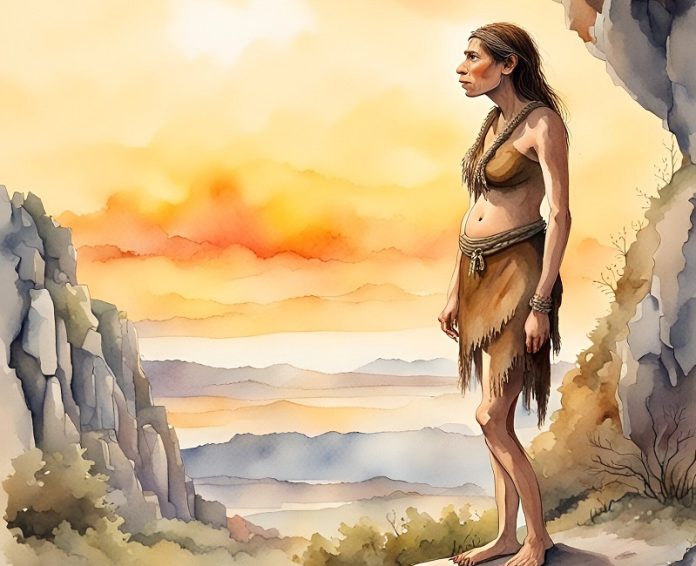
Have you ever wondered why some people are early risers, feeling most energetic in the morning, while others are night owls?
A new study suggests that our ancient relatives, the Neanderthals, might be influencing this trait.
Published in Genome Biology and Evolution, this research dives into the genetic material left behind by Neanderthals, our ancient ancestors.
It turns out that these genes might be why some of us are more inclined to be “morning people.”
Here’s a bit of background. All modern humans originally came from Africa about 300,000 years ago. But around 70,000 years ago, some of our ancestors migrated to Eurasia.
Here, they encountered Neanderthals, who had been living in these regions for over 400,000 years.
Unlike modern humans, Neanderthals had evolved under different environmental conditions, especially in areas with varied daylight and temperatures due to higher latitudes.
When humans migrated to Eurasia, they mixed and interbred with Neanderthals. This mixing allowed modern humans to inherit certain genetic traits that were well-suited to the new environments.
While many of these Neanderthal genes weren’t useful and got weeded out over time, some proved beneficial, like those affecting hemoglobin levels in high altitudes, immune resistance, skin pigmentation, and fat composition.
One aspect that’s been less explored is how these inherited genes might influence our circadian rhythms – our internal clocks that dictate when we feel awake or sleepy.
The study decided to investigate this, considering that Neanderthals had lived in areas with significant changes in daylight hours.
The researchers identified 246 genes related to the circadian clock and found numerous genetic variants, some of which could alter the way these genes work in humans. They used artificial intelligence to analyze these genes and discovered 28 that had variations likely inherited from Neanderthals.
The most interesting finding was how these Neanderthal genes affect our sleep preferences. Using data from a large group of people from the UK Biobank, the researchers found that many of these inherited genes make people more inclined to wake up early. This trait, known as “morningness,” seems to be a direct influence from our Neanderthal ancestors.
Why would this be beneficial? Well, in higher latitudes where day lengths vary drastically with seasons, being an early riser could have been advantageous.
It would help align sleep patterns more quickly with the changing daylight hours. This adaptation isn’t unique to humans. In fruit flies, for instance, shorter circadian cycles are essential for adapting to extended summer daylight in higher latitudes.
In essence, if you’re someone who finds it easier to get up with the sun, you might have the Neanderthals to thank for it. This inclination towards morningness could have been a crucial survival trait in the past.
John A. Capra, the study’s lead author, emphasizes the importance of this discovery. By analyzing ancient DNA and modern human genetics, they’ve uncovered a fascinating link between our sleep patterns and our ancient past.
The team plans to extend this research to more diverse populations and further explore the impact of Neanderthal genes on our daily lives. This study not only sheds light on our evolutionary history but also helps us understand why we behave the way we do today.



